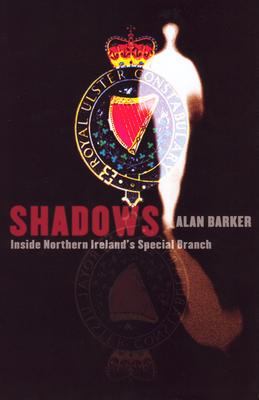Shadows: inside Northern Ireland's Special Branch
David Granville reviews Shadows: inside Northern Ireland'd Special Branch by Alan Barker, Mainstream Publishing, ISBN 1-84018-753-0, £15. 99 hbk

OVER THE last decade we have been deluged with books dealing with every conceivable aspect of the Northern Ireland conflict and peace process.
Although overall quality has been patchy, a number have successfully delved into the murkier nooks and crannies, helping us to form a rounder picture of what it was about, how it was conducted and by whom. Republicans, loyalists, the British army and intelligence services have all found themselves under the spotlight - with varying degrees of illumination resulting.
One area still bedevilled by official secrecy, misinformation and deliberate obfuscation concerns the conduct of Britain's 'dirty war' against republicans.
The book's publicists claim that Barker's account amounts to an 'explosive' insider account of the RUC's Special Branch, long linked to allegations of collusion with loyalist paramilitaries and famously described by former police chief constable John Stalker as 'a force within a force'.
Unfortunately, Barker delivers little more than a sanitised account of his time as a Special Branch officer handling agents working within the INLA and the IRA. Even the chapters dealing with the author's working relationship with 'supregrass' Raymond Gilmour fail to add anything new to this British intelligence disaster - all charges brought as as a result of Gilmour's evidence were thrown out of court.
Bizarrely, the author goes out of his way to portray the RUC as an integrated, model equal opportunity employer, representative of the aspirations of the majority of the people in Northern Ireland rather than as the overwhelmingly Protestant and deeply sectarian force of reality.
The picture drawn by the author is a far cry from the conclusions of Metropolitan police commissioner Sir John Stevens, whose partially published 2003 report concluded that collusion between the security forces and loyalist paramilitaries had continued unchecked for years and allowed the creation of a climate in which Catholics could be murdered with "near impunity".
Stevens also concluded that, in numerous cases, the relationship between Special Branch detectives, army intelligence and loyalist paramilitaries had been so unprincipled and lacking in accountability that it had bordered on "institutionalised collusion".
Recent developments concerning allegations that a Special Branch officer was responsible for telephoning through an anonymous warning to police about the Omagh bomb atrocity tend to suggest that the concerns raised by Stevens and human rights campaigners are far closer to reality than this misleading and, ultimately, unenlightening memoir.
Connolly Association, c/o RMT, Unity House, 39 Chalton Street, London, NW1 1JD
Copyright © 2005 David Granville

